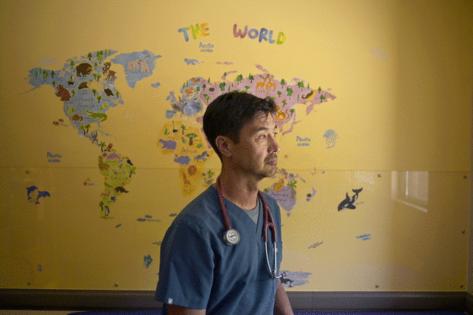Colorado Medicaid to pay for collaborative work to bring mental health into primary care
Published in News & Features
DENVER — Colorado’s Medicaid program will start paying for the behind-the-scenes work of treating people with mental health conditions and addictions in their primary care offices, which providers hope will lead to more patients getting the help they need.
The collaborative care model involves mental health professionals working in primary care clinics, with psychiatrists available to consult about patients’ needs, possibly via telehealth.
The federal government allows Medicaid to pay for the time the mental health professional spends assessing and tracking each patient’s progress, as well as consulting with the psychiatrist, but leaves it up to each state to decide whether its program will do so. Generally, insurance pays for treatment rendered to patients, but not the time spent coordinating it.
On July 1, Colorado became the 36th state to start allowing Medicaid to cover that supportive work, according to Path Forward, a nonprofit advocating for the collaborative care model. The Colorado Department of Health Care Policy and Financing estimated it will cost the state’s general fund about $368,000 in the first year, with about $1.1 million in federal matching funds.
The ability to bill Medicaid for that work will make it more sustainable for primary care practices to bring at least some mental health services in-house, said Dr. Shen Nagel, with Pediatrics West in Wheat Ridge. The practice employs one mental health professional, with grants helping to pay for her work coordinating care.
Typically, primary care providers had to give their patients a list of mental health professionals in the community and hope they followed through and found the care they needed, Nagel said. The on-staff professional at Pediatrics West can see patients with relatively routine needs now, but should be able to help those who need a bit more support once they move to the model where a psychiatrist acts as a consultant, he said.
The model won’t eliminate the need for referrals, but will allow some kids to get their mental health care in a place where they already feel comfortable, Nagel said.
“We could probably fill the schedules of five to six behavioral health providers, easily,” he said.
The collaborative care model hasn’t penetrated deeply in Colorado. About 500 people received care under the model paid for by commercial insurance in 2023, and 700 received it through Medicare in 2022, which was the most recent year with data, according to a report by the consulting company Milliman.
Nationwide, about 125,000 people received collaborative care paid for by private insurance, and about 73,000 had it covered by Medicare or Medicaid. The two groups could overlap somewhat if people moved between insurance types.
Generally, studies found that patients with depression who received collaborative care were more likely to report improved symptoms than those who only received typical primary care. One exception found similar levels of improvement in both groups, perhaps reflecting differences in what their primary care providers could offer.
Clinics reported widely varying rates of improvement, with some saying about one-third of their patients saw lessening of their depression symptoms, while a location in Texas reported four out of five patients’ depression got at least partially better.
The mental health provider community was watching closely to see whether the state would allow Medicaid billing for coordination, since it faces a significant budget gap next year, said Dr. K. Ron-Li Liaw, who has been chief of mental health at Children’s Hospital Colorado since 2022.
Most providers using the collaborative care model work with adult patients, but Colorado has an opportunity to show that it can benefit the roughly 20% of pediatric patients who have behavioral health needs, she said. A psychiatrist at Children’s will work with six practices, including Pediatrics West, to figure out how to make the model work for kids.
“We’ve been waiting in Colorado for this day as long as I’ve been here,” she said.
--------------
©2025 MediaNews Group, Inc. Visit at denverpost.com. Distributed by Tribune Content Agency, LLC.







Comments